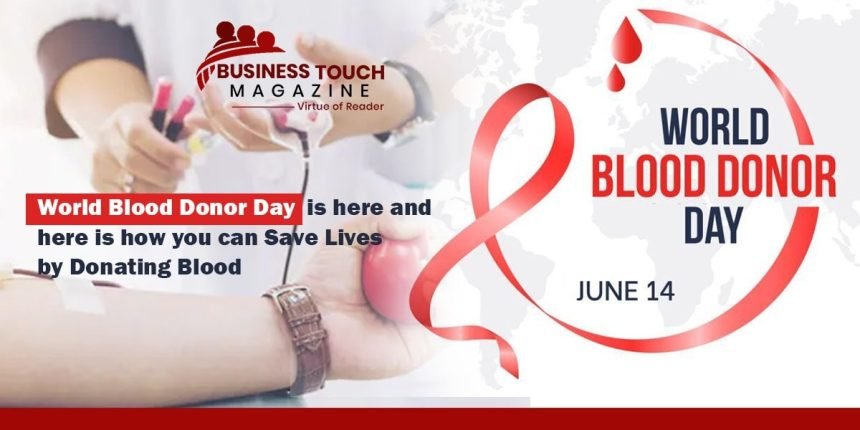Donating Blood is a once-in-a-lifetime opportunity to make a difference in someone’s life, and it is something everyone should take advantage of. To learn more about blood donation, please continue reading this article.
Every year, on June 14th, World Blood Donor Day is observed to honour those who give Blood as an act of goodwill. It aims to increase awareness of the need for safe blood and blood products, as well as thank blood donors for their life-saving contributions.
The availability of Blood is critical to the success of both scheduled and emergency medical procedures of all types (accidents, natural disasters, armed conflicts, etc.). Transfusions of blood and blood components save tens of thousands of lives each year. Patients with life-threatening diseases benefit from the improved quality of life and enhanced longevity that it provides. Medical and surgical operations may be completed because of it.
Building a national blood transfusion program backed by voluntary non-remunerated blood donations is vital to provide a safe and enough blood supply. There are numerous nations whose blood services fail to provide enough blood while maintaining its quality and safety.
Give Blood in 2022! Give right away. When possible, give often.
Emergency scenarios are the focus of this year’s Blood Donation Day. In times of crisis, the need for blood transfusions rises, making its supply more difficult and complex. During crises, blood supplies can only be reached if the most significant number of individuals come up to donate blood. Additionally, frequent blood donations by volunteers are essential in order to ensure that there is enough Blood on hand in the event of an emergency.
What You Need to Know Before You Donate
Following these suggestions will assist ensure that your blood donation is a successful one that is free of risks and filled with joy.
- Eat well. Make sure to consume a lot of iron-rich foods like red meat, chicken, beans, spinach, and raisins as part of your diet.
- Relax and get some shuteye.
- Before donating, consume plenty of water or non-alcoholic beverages.
- To get the best possible results from the tests being run on your Blood, avoid fatty meals before giving.
- Donor cards, driver’s licenses, and other forms of identification are required.
- During the Time of Your Gift
- Wear loose-fitting clothes that will not impede the collection of Blood.
- You may read, listen to music, or chat with other contributors during the contribution procedure.
- After you have finished your work, stop by the refreshments section for a portion of food and a drink.
- After You have Made a Gift
- Avoid alcohol over the following 24 hours and drink lots of water.
- You should continue to use the strip bandage for the foreseeable future.
- To prevent skin irritation, wash the area surrounding the strip bandage with soap and water.
- Do not carry heavy things or engage in any other physical activity for the remainder of the day since this might lead to injury.
- Rest if you feel dizzy or lightheaded after a donation.
“You are giving a second shot at life to someone else by donating your Blood. It might be a close friend, a family member, or even you. Do not be afraid to donate when blood donation camps are in your area. “According to Padma Vibhushan and Dr. B C Roy National Awardee Dr. Purshotam Lal, Chairman Of Metro Group of Hospitals, Padma Vibhushan and Dr B C Roy National Awardee
“You are the sole source of blood that cannot be synthesized; it only comes from people like you. a person’s life by donating blood “, consultant at Metro Hospitals & Heart Institute’s blood bank, Dr Ankita Aggarwal states




